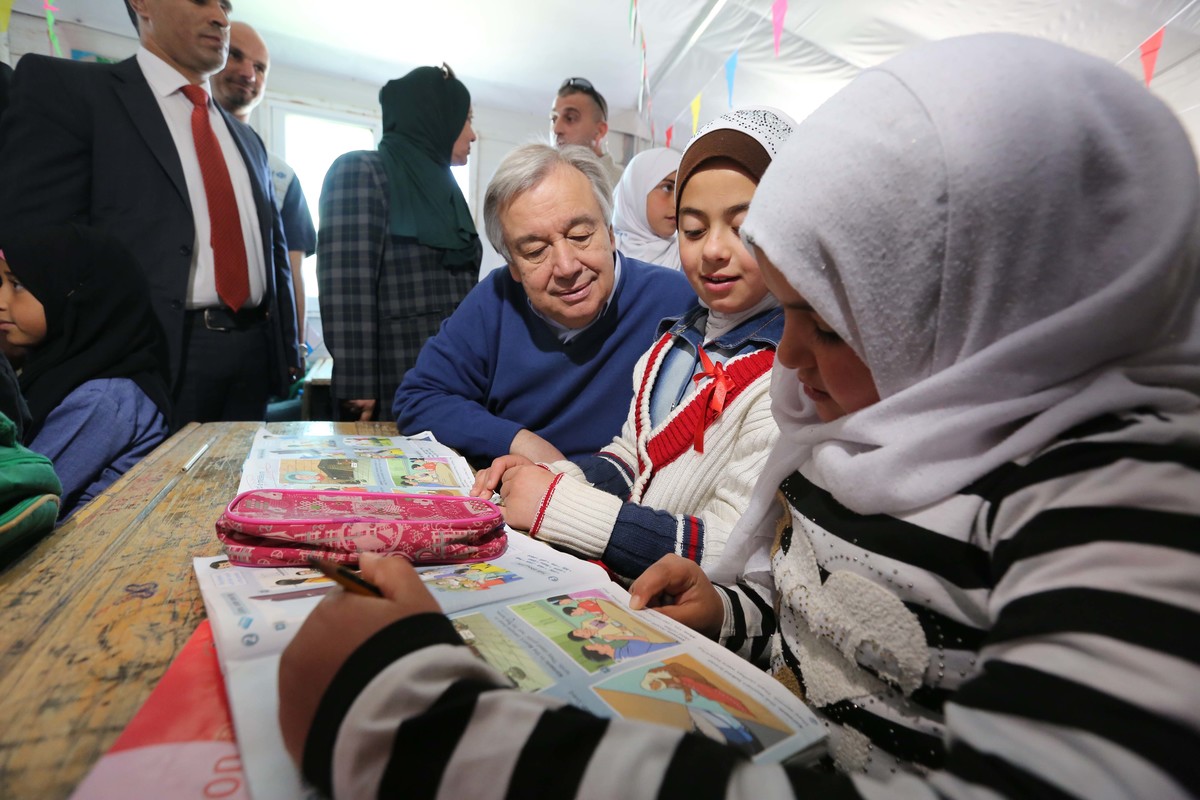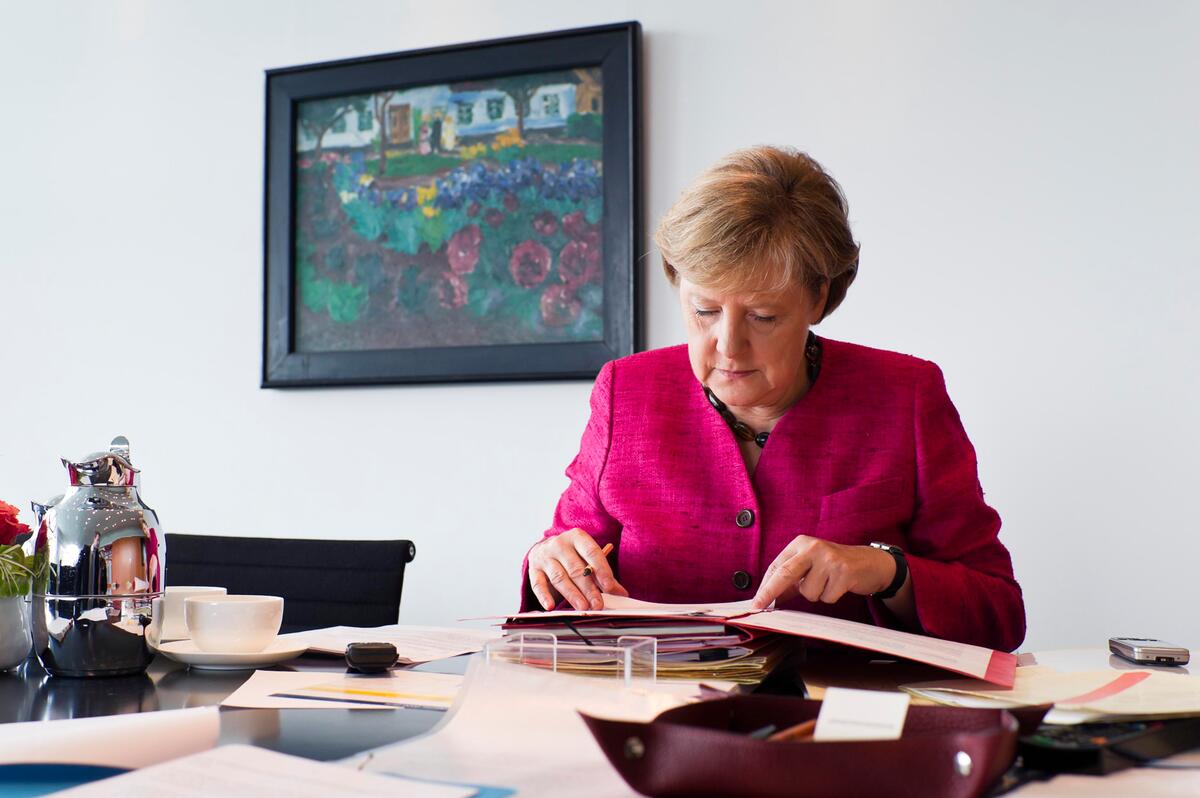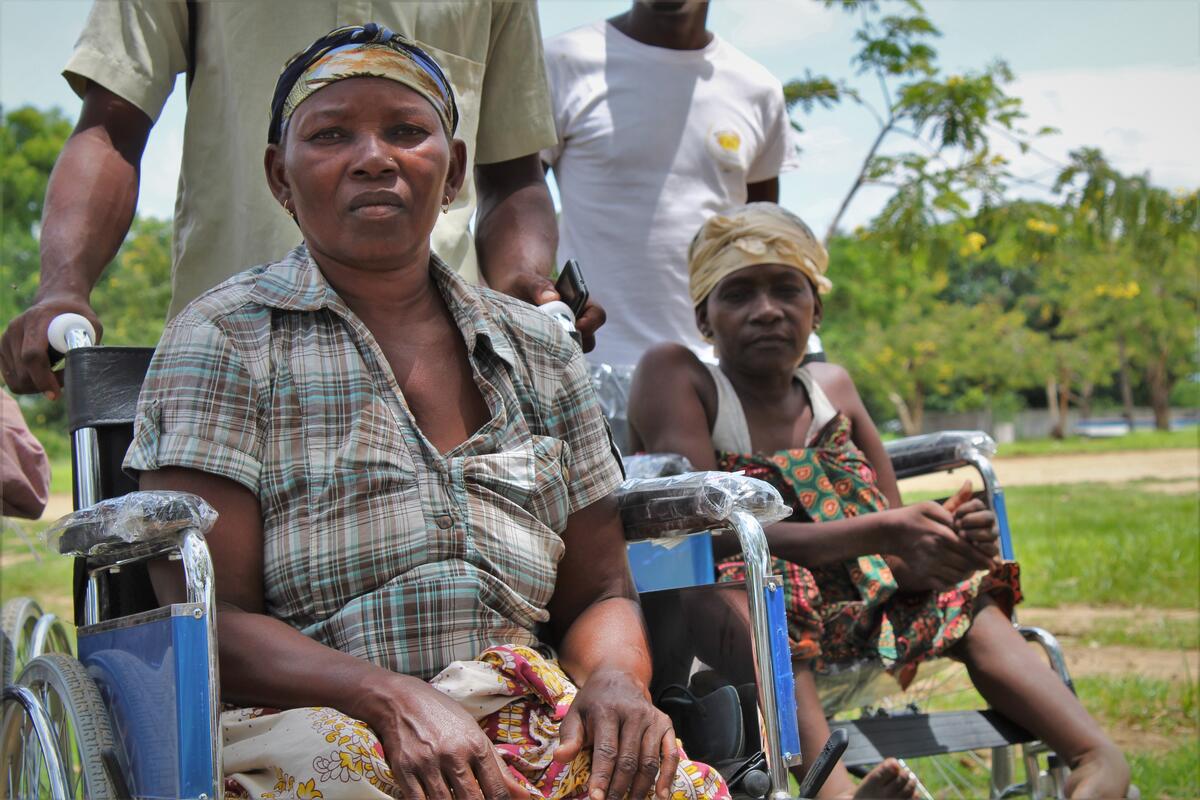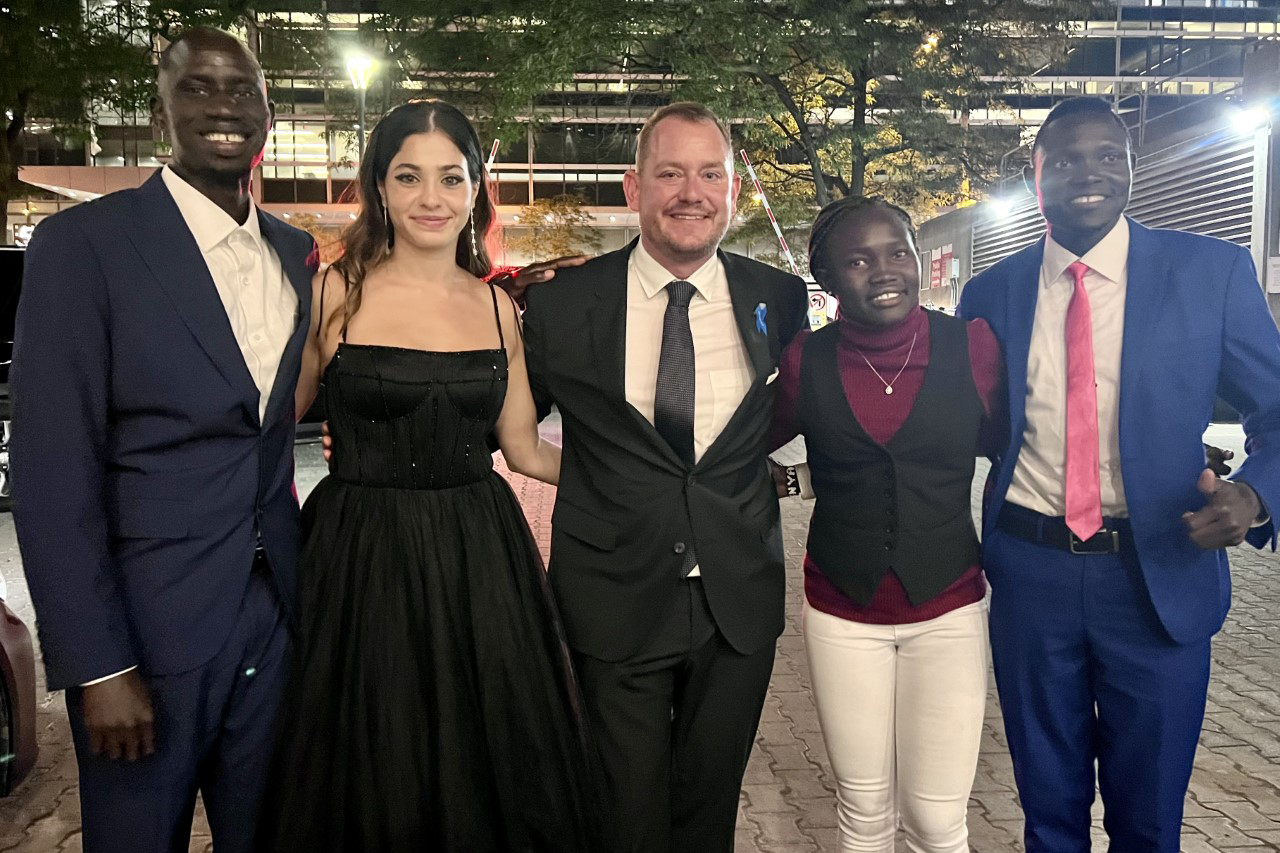UN chief says aid for Syrian refugees is in global interest
UN chief says aid for Syrian refugees is in global interest

ZA’ATARI REFUGEE CAMP, Jordan – United Nations Secretary General António Guterres on Tuesday urged the international community to increase its support for Syrian refugees and the countries hosting them, warning that failure to do so risked undermining global security.
Guterres, who served for a decade as UN High Commissioner for Refugees from 2005 to 2015, was speaking during a visit to Za’atari refugee camp in northern Jordan. The camp is the largest in the region and currently host to around 80,000 Syrian refugees.
“You can imagine my feelings and my emotions, after having been for 10 years High Commissioner for Refugees, how sad it is, how terrible it is that today we still have Za’atari camp full with Syrian refugees, and that the tragedy of Syria is going on and on and on,” he told reporters at the camp.
Guterres said the prolonged crisis had helped to fuel global terrorism, and that it was therefore in donor countries’ own best interests to increase levels of humanitarian support while seeking a political solution to the “tragedy” of the conflict.
“This is the moment to say that if the world fails to support refugees, the world is only helping those [extremist groups] that use these arguments in order to be able to recruit more people to put at risk our global security,” he said. “Solidarity with Syrian refugees is … not only an act of generosity, it’s an act of enlightened self-interest.”
“Solidarity with Syrian refugees is … not only an act of generosity, it’s an act of enlightened self-interest.”
In reality, however, the options available for Syrians to escape the violence and rebuild their lives in safety were becoming fewer and fewer, he warned, fueling the sense of despair.
“My appeal to the international community: increase humanitarian aid to the refugees, increase solidarity to countries like Jordan or Lebanon or others receiving Syrian refugees, and make sure that more opportunities are given to these refugees,” he said. “This is not the moment to reduce solidarity, this is the moment to increase solidarity.”
He praised the role of Jordan in welcoming more than 650,000 registered Syrian refugees, and said not enough had been done to help Jordan and other countries in the region bear the burden of hosting so many refugees.
Syria’s regional neighbours, who also include Turkey, Iraq and Egypt, are currently host to more than 4.9 million refugees from the six-year conflict, making it the world’s largest refugee crisis. A further 6.3 million people have been displaced inside Syria, and more than 13 million people there are in need of humanitarian assistance.
UNHCR’s Representative in Jordan, Stefano Severe, said that global political developments meant that the international response to the crisis had reached a critical point.
“Sustained and significant support for the Syria crisis is more crucial now than ever before, especially with the options for refugee resettlement likely to shrink,” he said. “This will result in an increased need for support to the most vulnerable refugees in the region to prevent them falling even deeper into poverty.”








